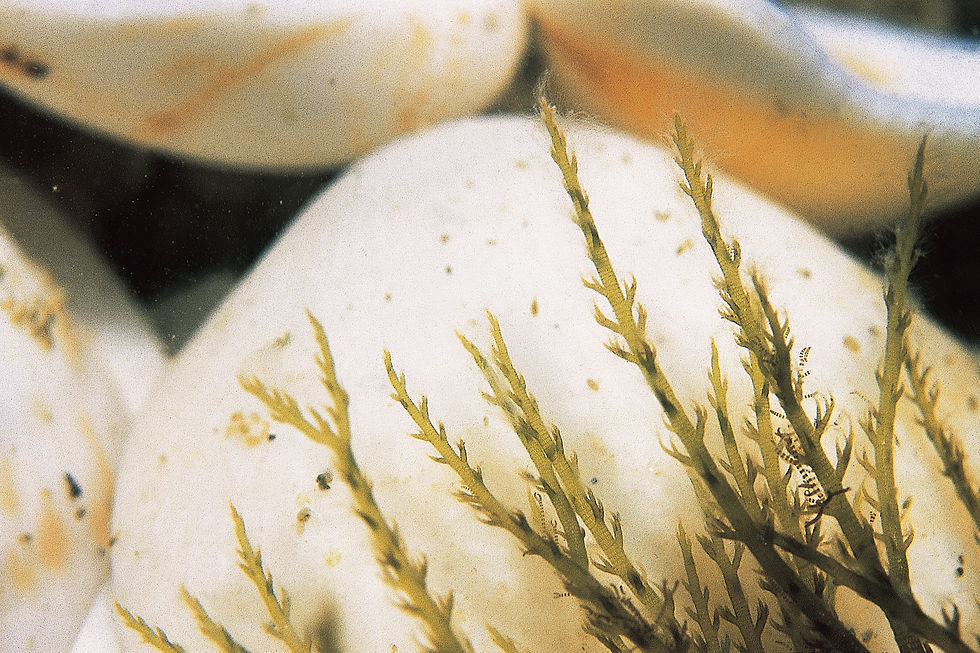Rhodophyta, Red Algae





Alsidium corallinum C. Agardh


Rhodophyta, Order Ceramiales; Family: Rhodomelaceae.
Etymology
Alsidium genus refers to its reddish tint. The species name, corallinum, derives from its resemblance to coral.
Description
The Alsidium corallinum is an erect alga, cylindrical and branched. Its branches are interleaved, and the central branch sprouts smaller, straight, sharp branches measuring no more than several millimeters. The branching begins at the base of the plant and continues irregularly.
Size
The alga can stand up to 20 cm in height, but is often no taller than 5 cm.
Colour
The Alsidium corallinum appears in various hues, ranging from red to green. Colouring differs from one individual to another, and depends upon lighting.
Special features
The Alsidium corallinum resembles the Hypnea in many ways, and the two can be easily mistaken for one another. However, the Alsidium corallinum is more delicate, uniform, and its branches are not hook-like. Nor does it sprout starlike bristles.
Habitat
The Alsidium corallinum can usually be found on abrasion platforms, in potholes, especially on their upper part, and sometimes also in the Weathring pits in the lower part of the notch. Sightings have been reported at up to twenty and sometimes thirty metres upon sandy and rocky sea bottoms.
Biology and reproduction
The cystocarp (a stage in the life cycle of some red algae, an asexual structure that develops around fertilized eggs and appears as a parasite upon the sexual generation), measure less than 1 mm, are transparent, vase-like and found on a pedicle, which may grow up to 1.5 mm. The reproductive tetraspores are concentrated among the side branches and resemble a necklace.
Top: Alsidium corallinum general view. Bottom: Alsidium corallinum microscopic view.
Seasonality and distribution
The Alsidium corallinum can be found along the coast during the summer and autumn months. Its global distribution includes the Mediterranean Sea and the Indian Ocean.
Additional species
A smaller species found along the coasts is Alsidium helminthochorton (Schwendimann) K.tzing.
In some places throughout eastern Asia, Alsidium helminthochorton is used to manufacture medication against worms.





